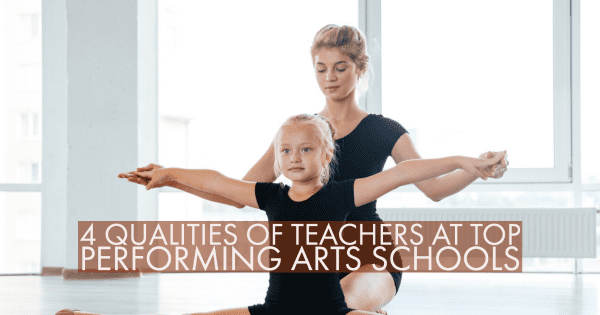
When you’re looking into performing arts schools for your young learner, it’s important to physically go to the school. Touring the facilities, viewing the stage your child will perform on, seeing the studios they’ll create in, and meeting performing arts teachers is a must before making a commitment.
Here are a few qualities to look for in teachers at top performing arts schools in your area to ensure your child is in the best hands.
Creative
The best performing arts schools will hire gifted teachers that spark curiosity and creativity in their students. Having a creative teacher will help your child understand that being innovative and original is key in school as well as in the performing arts sector.
With a creative teacher, your child can learn how to read music, dance, create art, and more with an instructor who is experienced and willing to pass down their knowledge in a way the students will understand and appreciate.
Education-Focused
School is school after all, and obtaining an education is still the number one priority for teachers at performing arts schools. While dance, drama, music, and art are important ingredients in a performing arts student’s education, math, history, English, and science won’t be forgotten.
The best performing arts school teachers will know how to make all subjects interesting and inviting for their students so that each school day is both fun and educational.
Organized
Performing arts schools for kids must have organized teachers. When you meet with your child’s teachers, they should be able to pull up their records and assignments easily. They should be able to differentiate your child from the rest of their students so that they can provide you with an accurate assessment of their strengths and weaknesses. Organized teachers will also have an easier time keeping their performing arts classes on time and on focus each time they meet.
Intuitive
Teachers must have sharp intuitions, too. A good performing arts teacher should be able to pick up on a child’s level of discomfort as well as offer support to give them more confidence. Intuition is also important for your child’s safety and well-being. A teacher who recognizes that your child is having a bad day will be better equipped to handle their emotions and move forward in that particular class.
There were 441,000 private schools teachers in the 2013-14 school year, and each and every teacher at a performing arts school position was likely carefully chosen. As you look into excellent performing art schools in your area, meet the teachers your child would have. Ask them questions about their classes and how they intend to help your child grow into a confident, skilled, and educated young learner and performer. From there, you should be able to determine which performing arts school will best suit your child.



